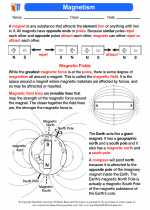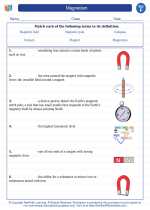Single-Celled Organisms
Single-celled organisms are living things that consist of only one cell. These organisms are also known as unicellular organisms. Despite being only a single cell, they are able to carry out all the functions necessary for life, including obtaining nutrients, growing, and reproducing.
Types of Single-Celled Organisms
There are several types of single-celled organisms, including:
- Bacteria: These are prokaryotic organisms that can be found in a wide range of environments, from soil to the human body.
- Protozoa: These are eukaryotic organisms that are often found in water and soil. They can be parasitic or free-living.
- Algae: These are photosynthetic organisms that can be found in aquatic environments. They can be unicellular or form colonies.
- Yeast: These are single-celled fungi that are important in processes such as brewing and baking.
Characteristics of Single-Celled Organisms
Single-celled organisms share several common characteristics:
- Cell Structure: They have a simple cell structure, with no distinct nucleus or organelles (in the case of prokaryotic organisms).
- Metabolism: They carry out all metabolic processes within a single cell, including obtaining energy and removing waste products.
- Reproduction: They reproduce asexually, typically by cell division, allowing them to rapidly increase in number under favorable conditions.
- Adaptability: Single-celled organisms are able to adapt to a wide range of environmental conditions, allowing them to thrive in diverse habitats.
Study Guide
Here are some key points to remember about single-celled organisms:
- What are single-celled organisms also known as?
- Provide examples of single-celled organisms.
- What is the cell structure of single-celled organisms like?
- How do single-celled organisms reproduce?
- What is the significance of single-celled organisms in the environment?
By understanding the characteristics and significance of single-celled organisms, you can gain a deeper appreciation for the diversity of life on Earth.
.◂Science Worksheets and Study Guides Sixth Grade. Magnetism
Study Guide Magnetism
Magnetism  Activity Lesson
Activity Lesson Magnetism
Magnetism  Worksheet/Answer key
Worksheet/Answer key Magnetism
Magnetism  Worksheet/Answer key
Worksheet/Answer key Magnetism
Magnetism  Worksheet/Answer key
Worksheet/Answer key Magnetism
Magnetism  Worksheet/Answer key
Worksheet/Answer key Magnetism
Magnetism  Vocabulary/Answer key
Vocabulary/Answer key Magnetism
Magnetism 

 Activity Lesson
Activity Lesson
 Worksheet/Answer key
Worksheet/Answer key
 Worksheet/Answer key
Worksheet/Answer key
 Worksheet/Answer key
Worksheet/Answer key
 Worksheet/Answer key
Worksheet/Answer key
 Vocabulary/Answer key
Vocabulary/Answer key

The resources above cover the following skills:
EARTH AND SPACE SCIENCE
Earth’s Systems
Develop and use models of Earth’s interior composition to illustrate the resulting magnetic field (e.g., magnetic poles) and to explain its measureable effects (e.g., protection from cosmic radiation).